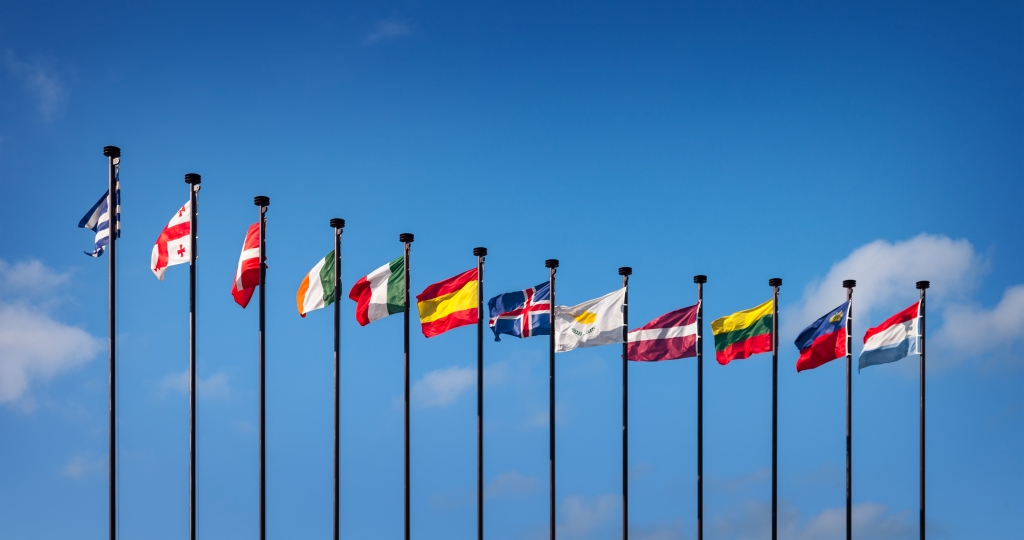The countdown has started for the last 12 months ahead of the deadline for the transposition of the Single Use Plastics Directive (SUPD) or the EU Directive 904/2019.
By July 3rd, 2021, all EU member states are supposed to have a legal action plan for the prohibition of expanded polystyrene food containers and other related products (cups, straws, plates and cutlery) set in motion.
As a continuation of SUPD and also a strong reminder for its 2021 deadline, on July 21st, 2020, EU leaders agreed on a new tax on plastic packaging waste. The tax, to be introduced as of 1 January 2021, will be calculated on the weight of non-recycled plastic packaging waste ‘with a call rate of €0.80/kilogram with a mechanism to avoid excessively regressive impact on national contributions’.
Where SUPD laws are concerned, some countries have already made progress in terms of such legislation – we are talking about France, Hungary, Spain, Greece, Germany and The Netherlands. There are also non-member countries, such as Serbia and soon-to-be-non-member UK – Wales, who picked up the pace and followed in their footsteps.
On the other hand, the remainder of EU countries seems to be stalled in devising a congruent legislative backbone.
NGOs and environmental activists – most vocal of which is Seas At Risk – note that under the spectrum of the Covid-19 pandemic, member states have tolerated the rise in single-use plastics consumption. These green lobbyists insist that governments not put a damper on plastic waste measures.
Italy postpones Plastic Tax to 2021
Previous measures adopted in 2019 – such as the national ban on plastic cotton buds and the ban on intentionally added micro-plastics in rinse-off cosmetic products, effective as of 2020 – seemed to indicate that Italy would be one of the early adopters of SUPD national laws.
However, the political debate in the Senate and Parliament on how to tackle single-use plastic pollution has only just started, with the promising Plastic Tax, which was supposed to be adopted in Italy in 2020, having been postponed to 2021.
Italy strongly promotes organic waste collection and plastics that are fully biodegradable and compostable. Nonetheless, environmentalists argue that this doesn’t solve the issue of single use plastics that are not part of the official list of banned products.
‘The implementation of [the] single use plastic [ban] must be accompanied by an improvement of waste collection, the promotion of innovation and research materials and design following the circular economy principles, and effective awareness campaigns for citizens and consumers to prevent waste and abuse of any kind of single-use items’, argues Stefano Ciafani, President of Legambiente, an Italian environmental association.
Source: https://seas-at-risk.org/stalling-european-plastic-law
Ireland and Slovakia – examples of action ever since 2019
Amongst the early adopters of own bill examples for SUPD, in November 2019, Slovakia joined the European Union fight to reduce marine pollution, by adopting a bill that makes it illegal to sell plastic plates, cups, cutlery, drink stirrers, straws and cotton buds, among similar items.
‘Our goal is to motivate people to separate waste, and (for) manufacturers to produce recyclable products’, Environment Minister Laszlo Solymos told reporters after the vote.
In a move that had environmentalists cheering, Ireland overhauled its waste sector as early as September 2019, by announcing a ban on single-use plastics, including cutlery, straws, cups, food containers and cotton bud sticks. The initiative also called for doubling the rate of recycled material and considered new levy requirements for non-recyclable plastics, such as those found in food packaging at groceries.
A more than justified legal framework, seen as Ireland annually generates more than 180 kg of waste packaging/capita, of which 58 kg is plastic, statistics above the EU average.
For those sectors unable to readily comply with the ban, heavy environmental taxes would have to be paid. These tax levies were designed as further measures to deter the widespread use of single-use plastics, especially non-recyclable ones.
Source:
https://www.france24.com/en/20191127-slovakia-bans-single-use-plastics-from-2021
https://inhabitat.com/ireland-plans-to-ban-single-use-plastics/

